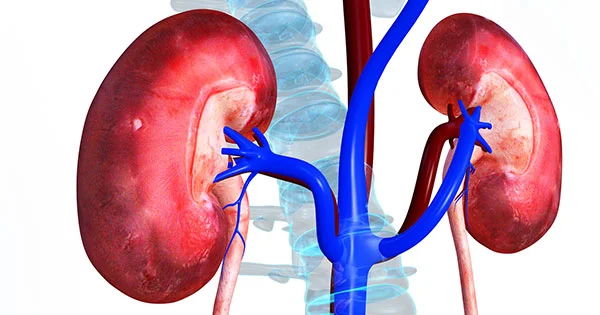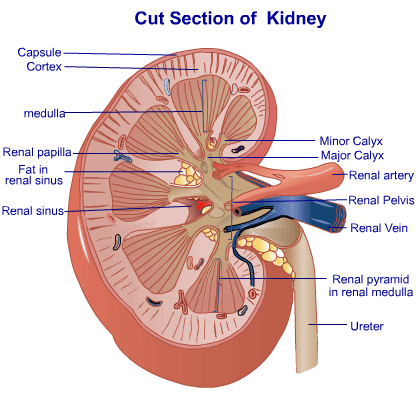Diabetes is one of the most common systemic disease to affect the KIDNEY
 Why Kidney damage?
Why Kidney damage?
Small blood vessels in the kidney filter out the waste products from the body. High blood pressure and high blood sugar can damage these vessels thereby they will not be able to do their functions effectively.
Stages of diabetic kidney damage:
In the beginning stages of kidney damage, traces of protein also called 'albumin' begins to appear in the urine. This stage is called MICROALBUMINURIA. Early kidney damage has no symptoms and can be treated with diet and medicines and is reversable.
As the kidney damage gets worse, large amounts of protein can be detected in the urine which is called as the stage of PROTEINURIA or overt nephropathy. By this stage, the damage is often irreversable in most cases. Finally the stage of renal failure sets which can rapidly progress to End stage Renal Disease which requires either Dialysis or Transplantation to sustain life.

